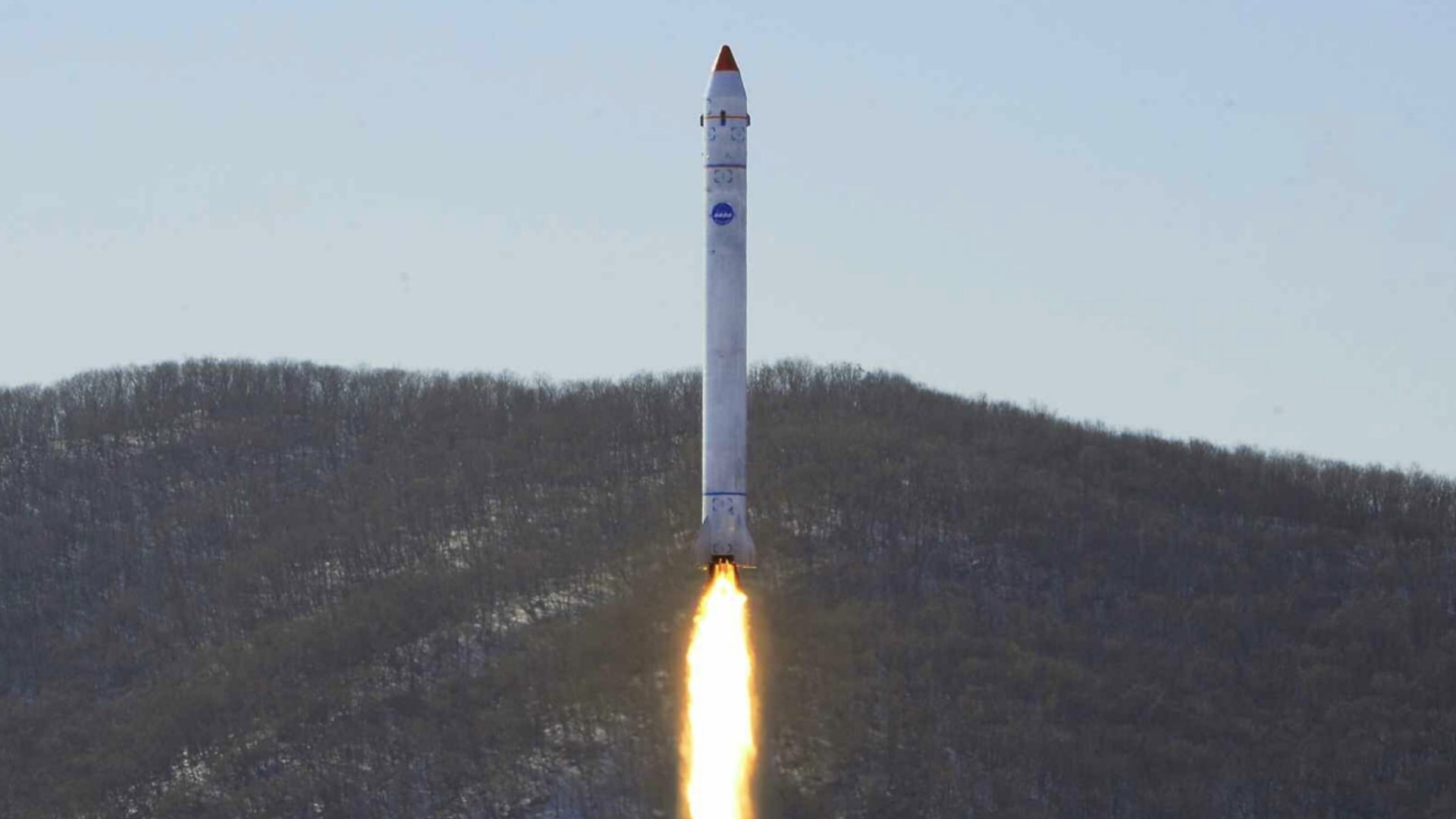North Korea launches test flight for planned 2023 spy satellite
North Korea released images of South Korean cities Incheon and Seoul it claims were taken during the test.

Breaking space news, the latest updates on rocket launches, skywatching events and more!
You are now subscribed
Your newsletter sign-up was successful
Want to add more newsletters?

Delivered daily
Daily Newsletter
Breaking space news, the latest updates on rocket launches, skywatching events and more!

Once a month
Watch This Space
Sign up to our monthly entertainment newsletter to keep up with all our coverage of the latest sci-fi and space movies, tv shows, games and books.

Once a week
Night Sky This Week
Discover this week's must-see night sky events, moon phases, and stunning astrophotos. Sign up for our skywatching newsletter and explore the universe with us!

Twice a month
Strange New Words
Space.com's Sci-Fi Reader's Club. Read a sci-fi short story every month and join a virtual community of fellow science fiction fans!
North Korea plans to launch a spy satellite into orbit by April 2023, according to the nation's state media.
State media outlet Korean Central News Agency (KCNA) announced the plans on Monday (Dec. 19) following what it called an "important, final phase" test launch of a rocket in order to verify ground systems, sensors and telemetry. The nation's only English-language news outlet, The Pyongyang Times, reports that North Korea's space agency will now "finish the preparations for the first military reconnaissance satellite by April 2023."
North Korea's space agency National Aerospace Development Administration (NADA) lauded the test in state-run media. "The test confirmed the important technical indices including the technology of camera operation in space environment, data processing and transmission capability of communication devices and the tracking and controlling accuracy of the ground control system," a NADA spokesperson said, according to The Pyongyang Times.
Related: Launch of North Korea's most powerful ballistic missile fails: reports
Along with the announcement, North Korea released images of the South Korean cities Incheon and Seoul it claims were taken during the test to evaluate the image processing capabilities of its planned satellite.
🆕 Just In: North Korea says yesterday's rocket launch was part of its tests for a military reconnaissance satellite. Page 2 of Monday's Rodong Sinmun carries an image of the launch and a photo talen by the satellite of downtown Seoul. (cont) pic.twitter.com/UUjS8WryX8December 18, 2022
The announcement comes just a day after Japan and South Korea reported that two ballistic missiles were fired from North Korea on Sunday (Dec. 18), drawing condemnation from South Korea's National Security Council.
It's not clear whether those missile launches were related to the satellite launch vehicle test reported by state media, although South Korea's military leadership reported that "North Korea's ballistic missiles were launched at steep angles and landed in the East Sea" after ascending to altitudes of 340 miles (550 kilometers), according to Retuers.
Breaking space news, the latest updates on rocket launches, skywatching events and more!
The Pyongyang Times, meanwhile, reported the satellite launch vehicle test involved a "high-angle launch of a test-piece satellite up to the altitude of 500 km." Reports of both incidents seem to describe what are known as lofted trajectories, in which missiles are fired nearly vertically. This path allows test vehicles to travel large distances while still landing close to their launch sites.
North Korea's announcement of a planned April 2023 launch of a spy satellite comes on the heels of news that the United States Space Force has officially established a presence in South Korea, known as U.S. Space Forces Korea. The aim of the new command is to "defend the homelands and ensure peace and security on the Korean peninsula and in Northeast Asia," Gen. Paul LaCamera, United States Forces Korea commander, said in a statement.
The new Space Force command will provide "near-real-time detection and warning of ballistic missile launches," according to the statement.
On Nov. 2, North Korea fired a record barrage of 23 missiles, mostly into the ocean; a day later it conducted an unsuccessful test of its most powerful ballistic missile yet.
Follow Brett on Twitter at @bretttingley. Follow us on Twitter @Spacedotcom or on Facebook.

Brett is curious about emerging aerospace technologies, alternative launch concepts, military space developments and uncrewed aircraft systems. Brett's work has appeared on Scientific American, The War Zone, Popular Science, the History Channel, Science Discovery and more. Brett has degrees from Clemson University and the University of North Carolina at Charlotte. In his free time, Brett enjoys skywatching throughout the dark skies of the Appalachian mountains.

